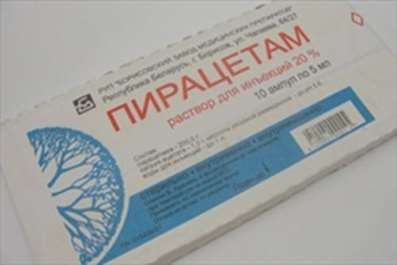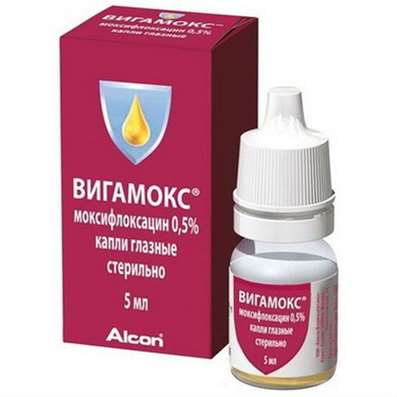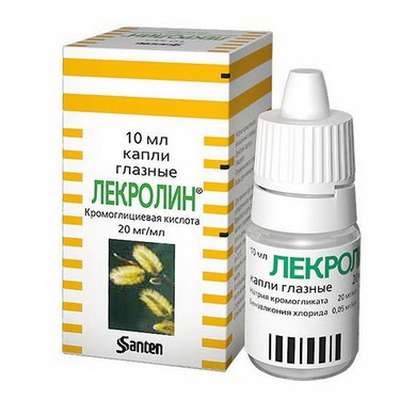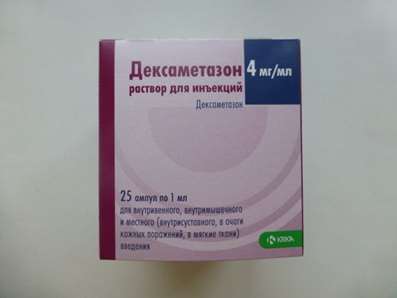Melatonin
01 Nov 2016
Melatonin — hormone of an epifiz which regulates a dream wakefulness rhythm and also has a wide number of additional effects. It is also known as sleep hormone. It is applied in tablets or capsules to falling asleep simplification, for the purpose of correction of "inner clock" at long travel. Positive action at weight loss is proved, and also antioxidant and effects are revealed.
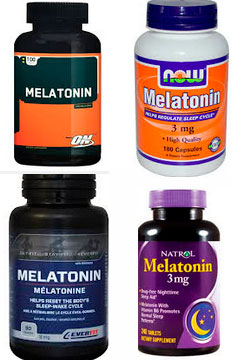
Melatonin occurs not only at the person, but also at animals, plants, worms and microorganisms. The research Maria Toschesemail in 2014 has shown that melatonin is one of the most ancient hormones which provided regulation of cycles at many live organisms more than 700 million years ago. Scientists believe that the rhythm of a dream of the person and other animals has been inherited at oceanic ancestors who under the influence of this hormone rose to the surface which is warmed up by the sun in the afternoon, and plunged more deeply at night .
Melatonin has been discovered in 1958 by professor of Aaron B. Lerner. He believed that this substance can be useful for treatment of skin diseases. Medicines of melatonin became for the first time available in the USA only in 1993, thus, this substance has quite short pharmacological history and his potential isn't completely realized.
Melatonin are released without recipe of the doctor and are classified as dietary supplements in the USA, Canada and Russia whereas in some countries (for example, in Germany) is prescription drug .
Effects of melatonin
Many effects of melatonin are caused by interaction with melatoninovy receptors (MT1, MT2) while other effects are bound to its antioxidatic and rejuvenating action. Special significance is attached to ability of melatonin to protect nuclear and mitochondrial DNA.
The most important effects of melatonin which have strong evidential base:
- Restores a rhythm of a dream - melatonin facilitates a backfilling, restores a natural circadian cycle, eliminates a day sleepiness
- Improves mood and a mental state
- The antistress effect of melatonin is especially important for the modern person
- Normalizes arterial pressure, in connection with the regulating influence on endocrine system
- Slows down aging processes (protects cellular DNA, deactivates radicals) and enlarges life expectancy
- Strengthens immunity
- Antioxidatic effect. The group of specialists of the Petrozavodsk university found out that agents with melatonin have the rejuvenating effect.
- The antitumoral effect of melatonin is caused by many factors: intensifying of antitumoral immunity, depression of radical activity, normalization of a hormonal background and interaction with RZR/ROR receptors.
- Melatonin eliminates some types of a headache
In the recent research conducted by scientists from the Spanish and Canadian institutes it was established that additives of melatonin promote strengthening of bones. It opens a possibility of use of such additives as a way of prevention of an osteoporosis at the people having predilection to a disease. Do not forget take Cerebrolysin for better results.
Melatonin in sport
Melatonin is involved in a regulation of body weight, and there are data that it can reduce a fat share in an organism and prevent an obesity (especially in a combination with a calcium). Research group from university of Granada (Spain) together with colleagues from American scientific center found out that melatonin stimulates emergence of so-called beige fat, - like fatty cells which burn calories. Results of a research are published in the Journal of Pineal Research magazine. Unlike white fatty tissue which accumulates fat, leading to weight augmentation, beige fat (also known as useful fat), helps to regulate body weight. Cells of beige fat express the high UCP1-level of protein which is necessary for mitochondrions for burning of calories and heat generation.
In earlier publications researchers studied effect of melatonin on an obesity, a dislipidemiya, high blood pressure and a diabetes mellitus of the second type which is bound to an obesity, on young corpulent rats of Zucker with Diabetum – experimental model of a metabolic syndrome.
Melatonin reduces an oxidative stress after the training, improves a dream and accelerates restoration that is important in bodybuilding and powerlifting.
Melatonin and libido
Very often information that melatonin can suppress a libido emerges and reduce the level of hormone and as a result of testosterone (these data have been obtained at a medicine research on primacies), especially frighteningly it sounds for those who do bodybuilding and other strength sports. Search among scientific literature has allowed to reveal two scientific works which have been devoted just to this question:
1. Conclusion: when comparing two groups of people in one of whom participants accepted a long time (12 months) melatonin it was revealed that there are no essential distinctions in levels of hormones, except for hormone which concentration was higher in group, the accepting melatonin .
2. To similar result also the Israeli scientists have come: level of hormone and testosterone remained invariable after reception of 6 mg daily.
Thus, it is possible to conclude that melatonin doesn't influence negatively the level of anabolic hormones in a human body, and some decrease in a libido, most likely, is connected with tendency of melatonin a little to increase Prolactinum level.
Melatonin physiology
Melatonin is formed in an organism of serotonin under the influence of N-enzyme.
At the adult about 30 mkg of melatonin are synthesized per day, its concentration in blood serum at night in 30 times more, than in the afternoon, and the peak of activity falls on 2 h night. Melatonin is transported by serumal albumine, after release from albumine contacts specific receptors on a membrane of cages targets, gets into a kernel and there performs the action.
Secretion of melatonin is subordinated to the daily rhythm determining, in turn, rhythm of effects and sexual function. Synthesis and secretion of melatonin depend on illumination — excess of light lowers its education, and decrease in illumination increases synthesis and secretion of hormone. At the person 70% of daily products of melatonin fall on night hours.
Melatonin in products
As it was already told, melatonin is synthesized both animals and plants, it means that small amounts of melatonin are present at food. Rather large number contains in such products as rice. Scientists determined that in case of the rice use, melatonin which contains in it is capable to be acquired and contact specific receptors in a brain of mammals.
"Attention" In other researches was shown that melatonin in food slightly influences plasma melatonin level. It means that from food it is practically not acquired .
Medicines of melatonin
Melaksen - the most popular medicine of melatonin of the American production.
Apik melatonin (Apic Melatonin) - medicine contains in one tablet: melatonin - 3 mg, a pyridoxine - 10 mg.
Vitae-melatonin - contains in one tablet: melatonin - 3 mg.
Melatonin plus - contains in one tablet: melatonin - 2 mg.
Tasimelteon - new medicine for treatment of sleeplessness which passes clinical tests. Tasimelteon is selective agonist the melatoninovykh of receptors.
Natrol (Natrol melatonin) - medicine contains in one tablet: melatonin - 1 mg, 3 mg, 5 mg or 10 mg. It Raspostranyatsya in the USA as dietary supplement.
Sports food
Sports food with melatonin became especially popular recently, many firms producers began to issue melatonin and their number constantly grows. It is necessary to notice that sports food with melatonin is much cheaper than pharmacological medicines that does them more preferable to purchase. Let's provide the list of the most popular sports additives:
- Melatonin from Optimum Nutrition
- Melatonin from NOW
- Melatonin from 4Ever Fit
- Melatonin from Biochem
- Melatonin from Cheap Supplements
- Melatonin from Natrol
- Melatonin from Ultimate Nutrition
- Melatonin from Scitec Nutrition
Application
The dosage of melatonin varies depending on the purpose of acceptance and specific features. The initial dosage of melatonin constitutes 1-2 mg a day, in the first 2-3 days it is necessary to check tolerance of medicine. In subsequent the dosage of melatonin can be increased to 5 and even 10 mg a day. The average duration of a rate constitutes 1-2 months.
The melatonin doses applied in researches at adults with various diseases:
Disease Dose (mg) reception Regimen
Alzheimer's disease 0.5 in 1 hour prior to a dream
Bipolar disorders 10 before going to bed
Cancer tumors 10-50 before going to bed
Restoration of circadian cycles at blind people 5-10 before going to bed
Depression 5 before going to bed
Prophylaxis of a headache 5-10 before going to bed
Hypertonia (raised by the ABP) 1-3 short course
Sleeplessness at elderly 3-5 in 30 - 120 minutes before going to bed
Sleeplessness of an obscure genesis 1-5 before going to bed
Disturbance of a daily rhythm 1-8 before going to bed
Schizophrenia 2 it isn't specified
Affective seasonal disorders 0,25-5 Daily
Improvement of a dream for the healthy person 0,1-6 in 30-60 minutes prior to a dream
Children under 18
Disease Dose (mg) reception Regimen
Restoration of a circadian rhythm at blind people 2,5-10 before going to bed
Preoperative alarm 0,1-0,5 it isn't specified kg of body weight
Convulsive states 5-10 before going to bed
Children with mental diseases 0,5-10 before going to bed
Harm and side effects
Melatonin is one of the most low-toxiferous substances which doesn't do harm to health even in very high doses. Cases when people exceeded a melatonin dosage in 600 and even 3000 times without harm for health are known.
Melatonin seldom causes side effects, however are possible: allergic reactions, headache, nausea, diarrhea, morning sleepiness, depression, edemas and some other. Rise in level of Prolactinum is possible. Practically all side effects of melatonin have reversible character - stop right after the end of administration of drug.
Estimating risk for health, it is possible to draw the general conclusion: harm of melatonin, undoubtedly, below advantage which this drug can bring.
Contraindications
- Hypersensitivity (allergy)
- Intolerance
- Autoimmune diseases
- Lymphoma
- Leukosis
- Lymphogranulomatosis
- Myeloma
- Epilepsy
- Diabetes mellitus
- Chronic renal failure
- Pregnancy, lactemia period.

 Cart
Cart

